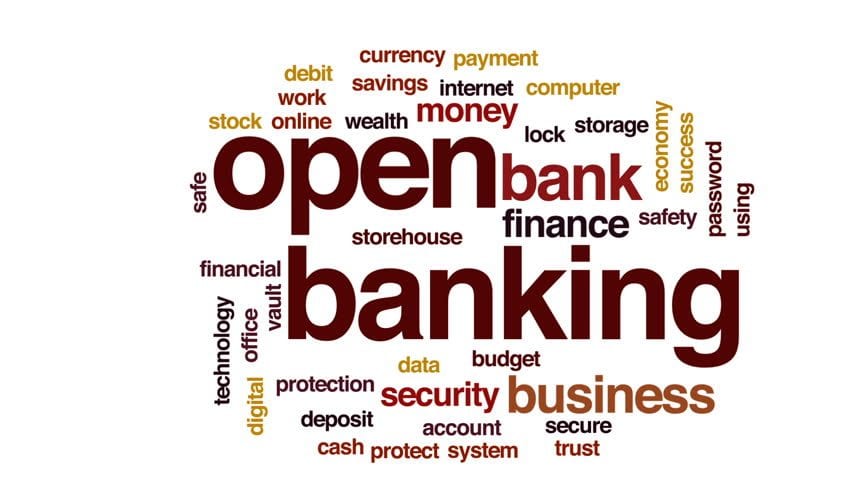
Ten years ago, I was presenting the concept of Banking-as-a-Service, with the idea that I could find a wide range of plug-and-play software in a cloud-based marketplace, and build my own bank by bringing these pieces of code together into an easy-to-use banking service. A decade later, that vision has come true as more and more Fintech firms offer plug-and-play code in the cloud to make banking simpler and easier. What I didn’t anticipate is that the regulator would push this service, making it mandatory. That’s what Open Banking has become, and Open Banking is no longer just a UK thing, but it’s gone global.
Australia has introduced Open Banking rules that will force the banks to share data with trusted Third-Party Providers (TPPs) by June 2019; Mexico has introduced a Fintech Law; South Korea and Singapore have enforced rules around financial data sharing between banks and third parties; and the USA has seen several banks innovating around open financial structures, although there is no law enforcing them to do this, yet.
What intrigues me about the market movements is that some large financial players are taking a lead in this space, such as Citibank and Deutsche Bank’s open API markets, whilst some are resisting the change. I have heard several reports in the UK that the large banks have made data sharing incredibly difficult for the customer, by making the permissioning process very onerous and time-consuming. Equally, the implementation of European rules under PSD2 has seen several Fintech firms cry foul, as each bank creates its own interpretation, and therefore API interface, of the law. The result is that any third party wanting to interface with the EU banks has to write integration code for each bank, due to the non-standard implementations across the markets.
But these are purely teething troubles as the markets move towards full open banking platforms. Interestingly, those that are embracing the change are seeing positive results. For example, the UK is now nine months into its implementation of Open Banking and, although it has been slow progress, there has been progress.
For example, the Dutch bank ING offers a digital banking app in the UK called Yolt, which has been one of the first to fully implement third party access integration. The service links to all Lloyds Banking Group, RBS and HSBC brands, as well as challenger banks Monzo and Starling. Equally HSBC launched the Connected Money app in May, allowing customers to see all of their current account, savings and mortgage accounts in one space, regardless of the provider. Using Open Banking, the app links to other banks, such as Santander, Lloyds and Barclays, so that customers can see how much money they have available until their next payday. The feature is called ‘balance after bills’, and shows how much is available in their current account until payday, once regular bills have been paid. There are other information rich services being developed around these themes too, making the bank more a challenger than some of the challenger banks. Speaking of which challenger banks, like Metro Bank, Starling Bank, Tandem and Monzo are all developing around API marketplaces and information services, in order to differentiate their offers.
This is why the momentum is building. The Open Banking Implementation Authority (OBIE) shared figures that show 3 million uses of open banking APIs in July 2018, June, up from 2 million in June and just 720,000 in May. There are now 67 regulated providers of APIs, made up of 44 Third Party Providers and 23 Deposit Account Providers. Progress indeed.
Where this leads to downstream is a rich market of start-ups, service providers, banks and non-banks, enriching the services and knowledge about their customers in real-time, all of the time. This will benefit the customer, by telling them more about their digital financial lifestyles, and provide better, more personalised service. Meantime, just one word of caution. If you asked customers: ‘do you want to share your bank account data with third party providers?’, they will probably say ‘no’. In survey after survey, I see this question being asked and typically 80% of respondents have a negative view about data sharing, particularly when it comes to their money. But what these surveys miss is the benefit they get in return. If they had asked instead: ‘would you like us to analyse your data to help you save more, spend less and generally be smarter with your money?’, then most would say ‘yes’.
All in all, the world is moving to an open banking structure where banks share data with trusted third parties, if the customer gives permission, and the march of this change is nigh on unstoppable today. Bearing in mind that most countries are starting to implement versions of these rules as regulations, if you’re not engaging in creating your own banks’ open structures today, then you better start pretty soon. After all, I can pretty much guarantee that an open banking regulation is coming your way sometime soon. Better to be ready for it, than let it be a surprise you hadn’t considered.
This post was originally published by The Banker magazine.
Chris M Skinner
Chris Skinner is best known as an independent commentator on the financial markets through his blog, TheFinanser.com, as author of the bestselling book Digital Bank, and Chair of the European networking forum the Financial Services Club. He has been voted one of the most influential people in banking by The Financial Brand (as well as one of the best blogs), a FinTech Titan (Next Bank), one of the Fintech Leaders you need to follow (City AM, Deluxe and Jax Finance), as well as one of the Top 40 most influential people in financial technology by the Wall Street Journal's Financial News. To learn more click here...

